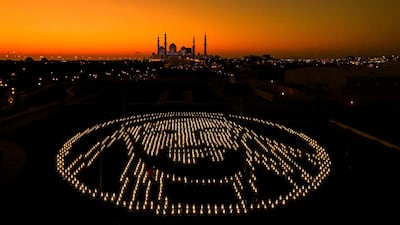The Zayed Future Energy Prize has been renamed the Zayed Sustainability Prize to expand the focus and impact of the prestigious international award.
Launched ten years ago, the Zayed Sustainability Prize will in future focus on five categories including health, food, energy, water and international secondary schools.
Organisers say the categories were chose as being closely related and representing the basic constituents of survival. They believe supporting and encouraging innovation is the best way to promote sustainable development.
Read more: How the Zayed Future Energy Prize helped to light up the lives of children in Malawi
Dr Sultan Al Jaber, Minister of State and Zayed Sustainability Prize general director, said: “Over the past decade, Zayed Sustainability Prize has had a positive impact on the lives of 307 million people through enhancing means to access energy, clean water, education, training, awareness raising and more.
"In a move aimed at enhancing alignment with the UAE's national goals and the United Nations goals for sustainable development, the award will expand to encompass not only renewable energy, but also global sustainability projects and innovations as well as human development initiatives. The prize will support the young generation by expanding the scope of high schools internationally to include new regions around the world."
Dr. Lamia Fawaz, Zayed Sustainability Prize director, said the new direction for the prize "will also have a positive impact on improving people’s lives around the world by inspiring especially the young generation and motivating them to look into the future to be creative thinkers".
"They will in turn contribute to positive development and promote progress towards sustainable development to benefit more people and take advanced steps towards finding solutions to some of the biggest challenges facing the world. "
Applications for the Zayed Sustainability Prize are now open, and it will be awarded during Abu Dhabi Sustainability Week in January, 2019.


